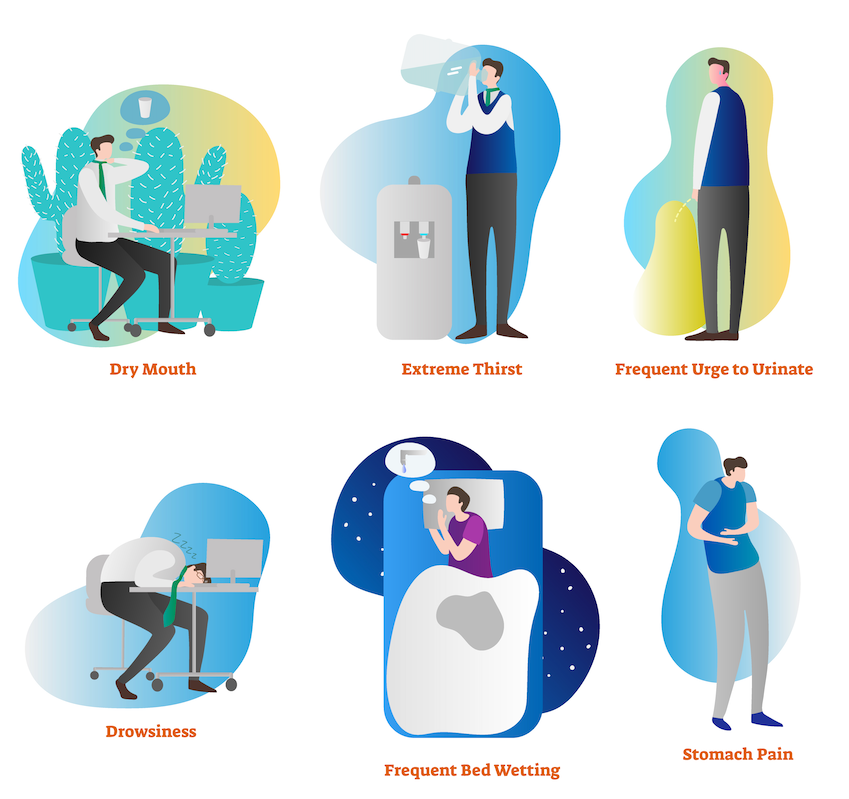What are the symptoms of diabetes?
If your pancreas is not making insulin, the glucose in the carbohydrates you eat or drink cannot enter your cells to be converted into energy. The resulting build-up of glucose in the blood is what causes the early signs that you may have diabetes.
Below are the most common symptoms of type 1 diabetes. Although they may sound alarming, bear in mind that they are largely temporary. Once your diabetes has been diagnosed and you begin to take insulin to regulate your blood glucose levels, they should disappear.

Passing a lot of urine, especially during the night
When you have type 1 diabetes and not enough insulin, your blood glucose levels will continue to rise. The kidneys will detect the excess glucose and will try to get rid of it in your urine. You are likely to have to get up to pass urine frequently during the night, and it is not uncommon for younger people to wet the bed too.
Excessive thirst
As you urinate more, your body becomes dehydrated, and so in turn you feel thirsty and start to drink more. The more dehydrated you become, the thirstier you get. Often, people with undiagnosed type 1 diabetes complain of drinking litres of water every day and still not being able to quench their thirst.
Increased hunger
You may feel very hungry a lot of the time. This is because the body is hungry for energy for its cells. Unfortunately, this is a vicious circle: eating more will only increase your blood glucose, which will make the symptoms worse.
Weight loss
If your body cannot use the glucose to make energy, it will try to find the energy from another source. It does this by breaking down fat and muscle cells and converting them into energy. This leads to weight loss.
Tiredness
You get around half your daily energy from glucose. Without insulin, glucose is prevented from entering your cells and it makes you very tired.
Blurred vision
Blurred vision can occur because high blood glucose can enter the lens of the eye, causing it to swell. This is usually temporary and disappears after you have started treatment. It is important though not to get new glasses or contact lens during this time, as your vision will reset once your blood glucose levels drop back down to normal.
Thrush and urine infections
Bacteria, viruses and fungus love warm, moist and sugary environments, so when you have high blood glucose levels you are more likely to get infections. The most common are fungal ones, such as thrush, which can appear in the mouth or genital area. Some people also develop skin abscesses or spots.
Poor concentration, mood changes and irritability
Lack of energy getting to the brain can affect the way you think and your mood. These symptoms can be associated with high blood glucose levels (although there may also be other causes).
Stomach pains, sickness and vomiting, difficulty breathing
These are more serious symptoms and are a sign that your body is trying to get rid of ketones. If you experience any of these symptoms, you should seek urgent medical care. High levels of ketones may also give you a strange taste in your mouth and your breath may smell like pear-drop sweets.
What symptoms of diabetes did you get when you were diagnosed? Feel free to share your experience in the comment section below.



Leave a Reply
You must be logged in to post a comment.